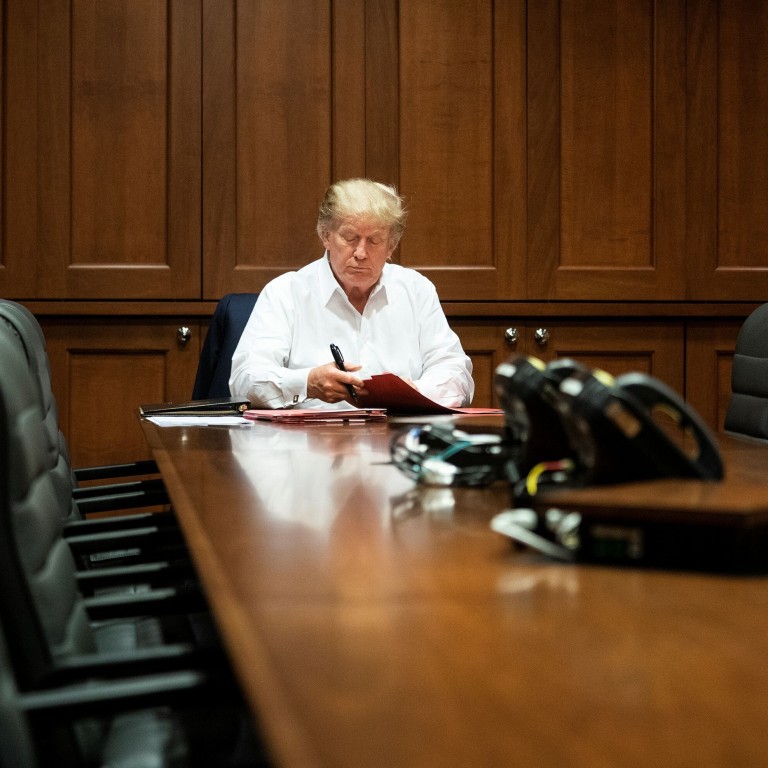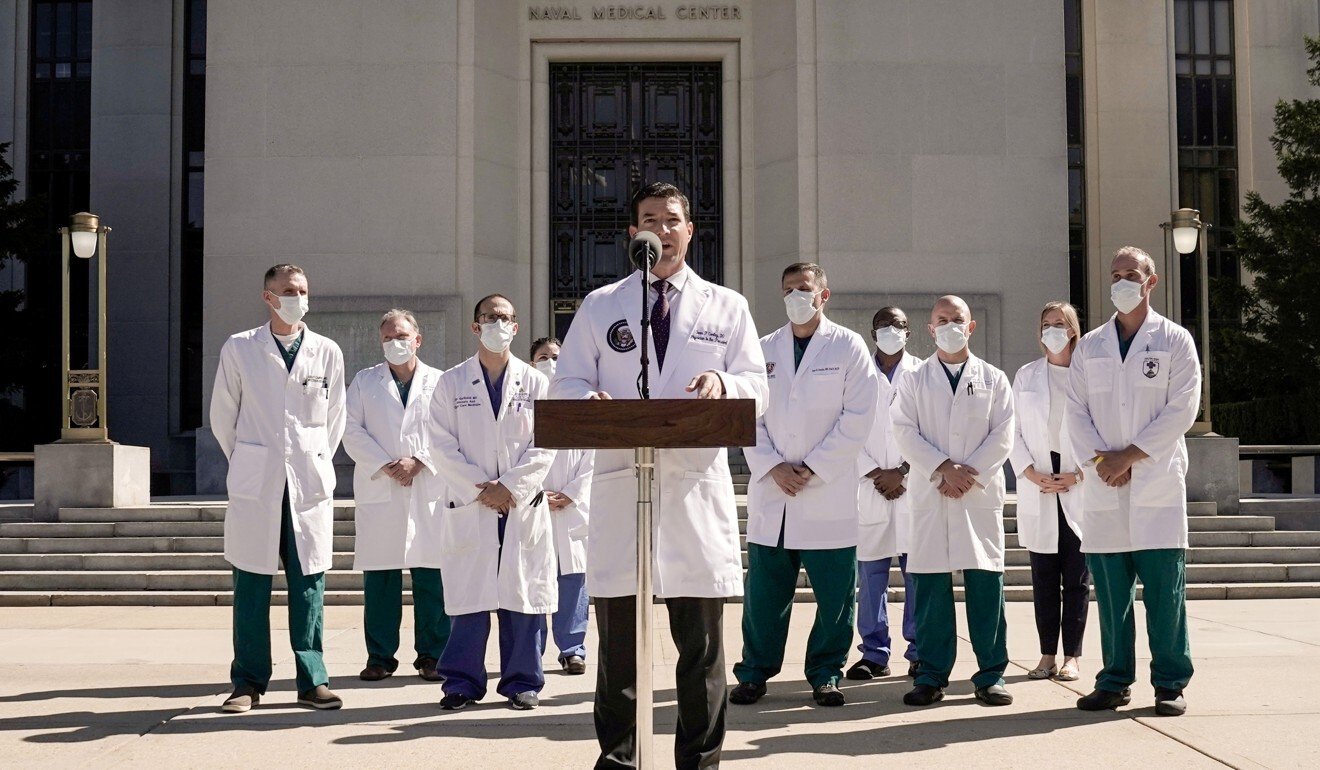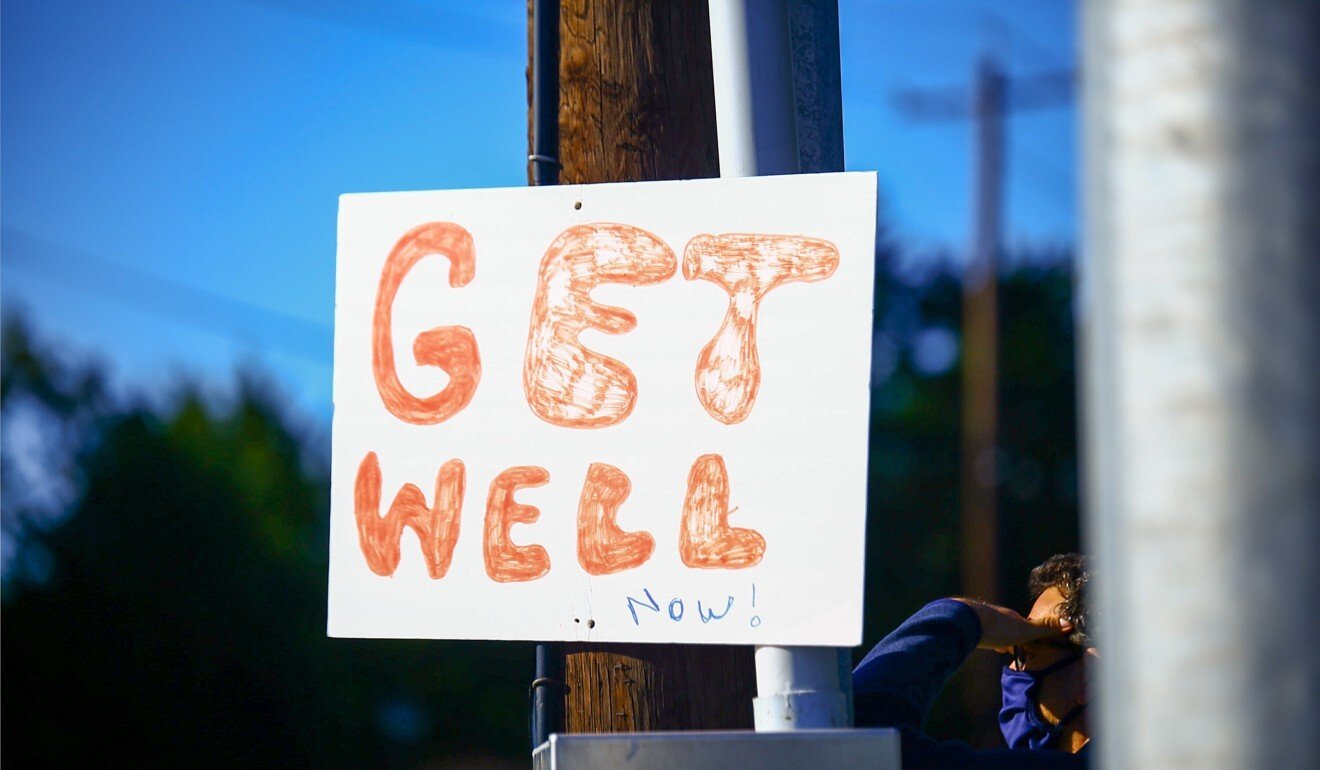
Why the next few days are ‘the real test’ in Donald Trump’s Covid-19 battle
- Doctors will be watching closely for signs of rapid deterioration in Donald Trump’s health
- That can occur when the immune system, unable to target the virus, causes widespread collateral damage
US President Donald Trump’s battle with Covid-19 will come to a critical turning point in the next few days as the disease tests his immune system.
On Saturday, Trump and his doctors acknowledged the importance of the coming days as the illness enters what White House doctor Dr Sean Conley called “phase 2”.
The course of Covid-19 can be highly variable, but the next three to five days are likely to be crucial, say doctors who have treated hundreds of coronavirus patients.
Several days after symptoms of Covid-19 appear, the body’s immune system must make an important switch to fight the virus with precision – or possibly face life-threatening consequences.
Covid-19 patients can “look pretty good for a few days, then they go south,” said Dr William Schaffner, an infectious disease specialist at Vanderbilt University.
Joe Biden looks to seal US election after Donald Trump’s week from hell
That rapid deterioration can occur when the body’s immune system, unable to successfully target the virus, causes widespread collateral damage as it “brings in the troops”, Schaffner said.
A typical time frame for patents’ decline is about five to 10 days after the person starts getting sick, said Dr J. Randall Curtis, a professor of pulmonary and critical care at the University of Washington school of medicine in Seattle.

Conley on Saturday said Trump was in his third day of fighting the virus.
That day White House chief of staff Mark Meadows said: “The president’s vitals over the last 24 hours were very concerning and the next 48 hours will be critical in terms of his care. We’re still not on a clear path to a full recovery”.
Several US media outlets said Trump was on oxygen at the White House on Friday before being admitted to Walter Reed.
Trump’s election campaign upended by diagnosis as his health remains unclear
During the early part of a patient’s Covid-19 illness, the body uses an “agnostic” immune response, said Dr Greg Poland, director and founder of Mayo Clinic Vaccine Research Group. It doesn’t know what it’s fighting, but realises something potentially dangerous is occurring. That’s called the innate immune system.
Key to a successful recovery is an immune response that targets the coronavirus itself. That’s called the adaptive immune system.
To avoid serious illness, a patient’s innate and adaptive immune systems must stay in balance, and the virus itself must not cause serious complications along the way.
Age is a risk factor. Older patients tend to be less successful in activating the adaptive response, according to Melissa Nolan, an infectious disease expert and professor at the University of South Carolina.

Trump turned 74 in June, putting him at 90-times higher risk of death than someone in their 20s, according to data from the US Centres for Disease Control and Prevention.
But the course of Covid-19 can be highly variable. The president’s VIP medical treatment and access to cutting-edge therapies make the trajectory of the illness even tougher to predict.
How is it OK to wish Donald Trump would die of Covid-19?
Patients tend to see short-term fluctuations in their symptoms throughout their illness, so doctors often evaluate a Covid-19 patient’s progress over the course of days, said Dr David Eisenman, a professor at UCLA Fielding School of Public Health. As of Saturday evening, the information released by the White House was not enough for him to evaluate Trump’s progress thus far.
Curtis said the fact that the president’s fever was improving was a good sign but doesn’t necessarily indicate he’s out of trouble.
Additional reporting by Reuters and Agence France-Presse

